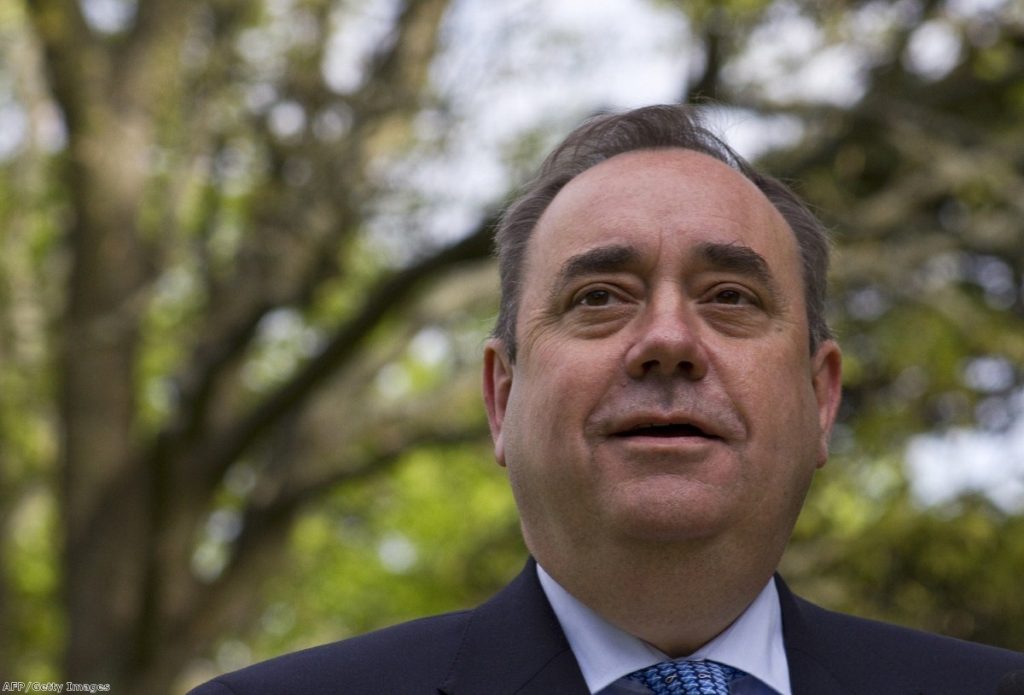Oil riches for Scots: Salmond ‘fundamentally dishonest’?
By Phoebe Cooke
Alex Salmond has been accused of "fundamental dishonesty" after he estimated every Scot would be £300,000 better off in an independent Scotland.
The first minister based his assumptions on a Scottish government paper released on Tuesday, which sets out the Scottish National party's administration for the oil industry if it secures independence.
Salmond said he intended to set up an oil fund over the next five to ten years which would directly financially benefit every person in an independent Scotland, and make Scotland's GDP 115% higher than the rest of the UK's, and the country the sixth wealthiest nation in the world.


But those fighting the 'Better Together' campaign to keep Scotland part of the UK disputed the validity of Salmond's data, saying that he had confused the wholesale figures with the money that would actually come back to the public purse.
Former chancellor Alistair Darling, who heads the pro-union campaign, strongly criticised what he claimed to be the Salmond's manipulation of the facts.
"For Alex Salmond to treat us like fools by deliberately confusing the wholesale value of oil with the amount we would actually raise through tax is fundamentally dishonest," he said.
"He should withdraw the claim."
Salmond seemed adamant that his plan for the £1.5 trillion future reserve of oil and gas would produce the greatest benefit for the Scottish people, however.
"We intend to follow the Norwegian example of having a fund that accumulates which gives greater security to the economy," the first minister said, although he admitted Scotland was not currently in the right place financially to set it up in the immediate future.
The paper challenged last week's predictions from the UK Office for Budget Responsibility (OBR) that short-term oil revenues would flatline to produce cumulative tax revenues of £33.2bn by 2018, saying that oil income would rise to up to £57 billion.
It said that wealth could allow an independent Scotland to save excess oil tax revenues in a sovereign wealth fund.
According to the paper, academics estimate 98.8% of total oil production and 60% of total gas production in the 30 years from 2011 will be in Scotland's geographical share of the UKCS.
However, economists at Glasgow University's Centre for Public Policy for the Regions (CPPR) said that the OBR had overestimated North Sea oil production levels "in every set of projections made".
An independent Scotland "would need to rely on most, or all of the tax revenues from the North Sea" to ensure its deficit did not increase further, they added.
This would mean there would be no money left for Salmond's Norwegian-style oil fund, which the first minister seemed convinced would happen within a decade.
Willie Rennie, the Scottish Lib Dem leader, said that the £300,000 figure was "stretching the wildest boundaries of any imagination".









